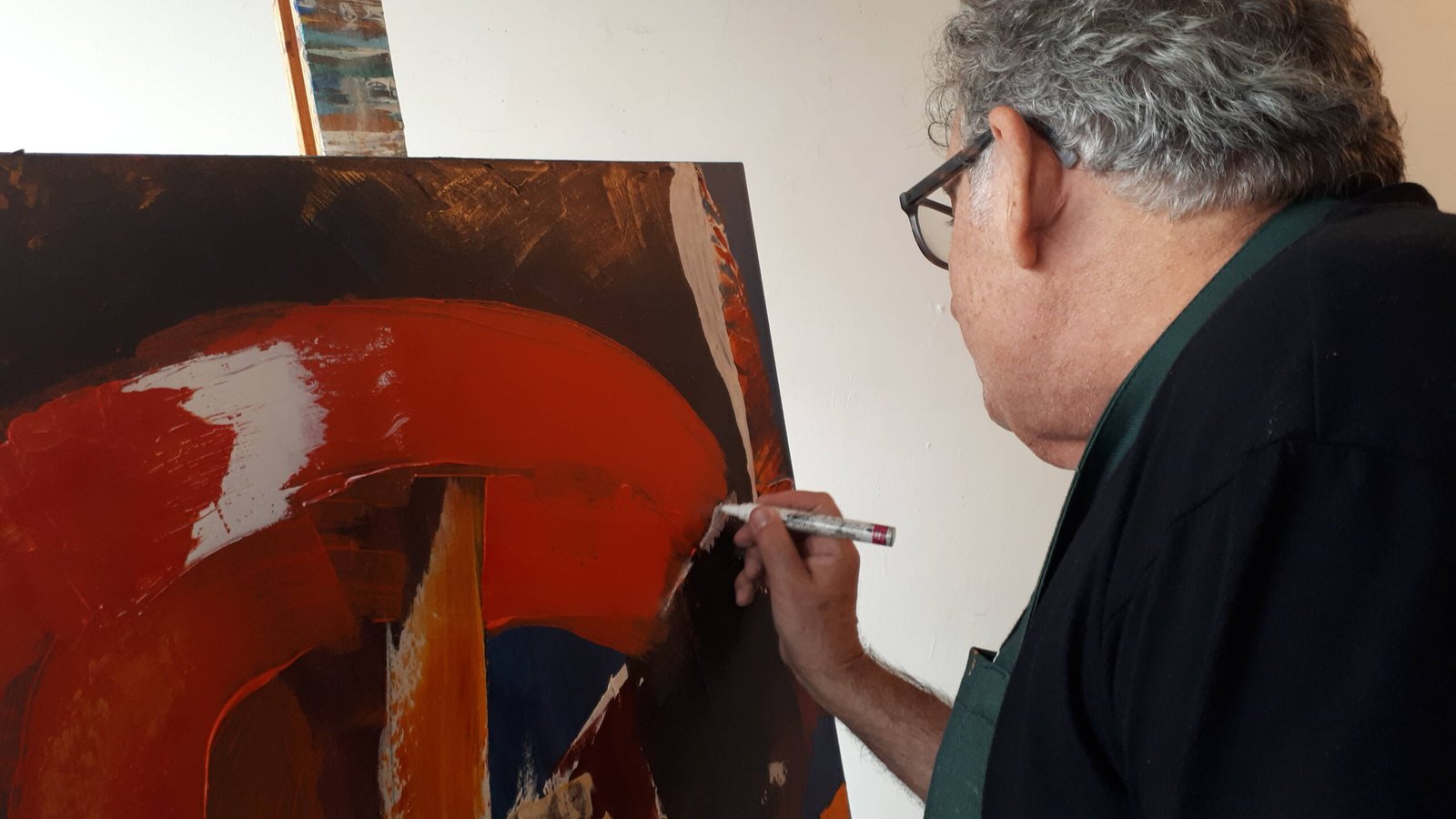Q and a with David Hovan (685 Words 4 Min. Read)
1. Your background in art spans between acting, directing, film make, as well as portinting. How do you see that all of these are Connected somehow, and dos that reflect in your art?
Absolutly. For me, they’re all manifestations of storytelling —each with its Own Language, but ROOTED in the Same Desire: to Explore the Human Experience. Acting Taket Me Empathy, Directive Sharpeted My Sense of Visual Rhythm and Intension, Filmaking Gave Cve ME Structure INTO A Single Image. These Forms Don’t Compete in My Work – They Echo Each Other. Offline, What Begins as a Cinematic Idea End Up as a Painting, Or Vice Versa.
2. Having Lived in Many Counties Around the World, Whiche Experience and in You Country Did You have
The country that left the Deepst Impression on Me During My Formative Years Is, Without Question, Lebanon. Those Summers by The Mediterranean – Swimming Under Moonight, The Rivers So Pure They Felt Almost Sacred, The Sunsets that etled themselves into my visual vocabulary – all of it shaped my Artistic Sensbaility Long Before I KNEW What that Realily Meant.
Beirut, when it was the ‘paris of the Middle East,’ was a magnet for creating minds from every corner of the world. There was a raw elegance in itsounts: Mountains Brushing Against the Sea, Ancient Villages Next to a City that Never Slept, The Warmth and Openness of People Who KNEW How to TO Celebrate Life Even in UNCERTAIN Times.
The Richness of Those Cultural Encouns, The shared Tables Overflowing with Food, The Music and Festivals that seemed to Pulse Year-Round-They Became Part of My Palette, My Sense of Color, Light, and Human Connection.
3. We Undersand You WERE BORN In Beirut, Lebanon. Do you still Visit Lebanon and do you plun any exhagesins there?
Beirut is part of my emotional dna. I Carry It with me when going I GO – Its Intensity, Its Contradationsctions, Its Resilience. Although I Havent long Truly Resonates with my work.
Idealy, I’d Like any exhalation in Beirut to be more than just a show of my conmphorery pieses. I’m interested in English with the City’s Fragmented Visual Memory – How The Past and Prestant Collide in Its Streets, Its Architecture, ITS Collective Psyche. For me, showing my work there is wouldn’t just be About Being Seen; It would be an act of retrationing and reimaging What Beirut Means to Me and Hopefully to others.

4. How do you see that Art Coverage by Journals and Art Platforms Is Headed, and do you support constucive Criticism in Art Coveage?
Art Criticism Is in A State of Flux. The Digital Age Democratized OPINION, but it also Dilied the Rigor of True Critical Engagement. I belief Deeply in Constructive Criticism –it’s Not About Passing Judgment, But about Envering INTO A DialGue. We Need More Voices that challenge with card, and fewr that echo consusus. A Thoughful Critique Can Nourish an Artist More Than Praise.
5. Do you see this as a was wlcomed steps for an artist, or should artists stick to their complex zones?
In My Experience, Comfort Can Easily Become The Enemy of Meangful Growth. I believe it’s Important for Any Artist to be working to take beyond what feels Familiar. Changing Direction DoesnT Mean Abandoning One’s Voice – IT Means Expanding ITS RANGE and Staying Responsive to where the work Whats to go.
Some of My Strongst Pieses Have ComE from Moments of Delyberate RISK, when ILOWED Myself to Stand in the Unknown for a While. That Space – Where You’re Both Vulnerable and Curious – is offen where the most compounding work takes shape.

